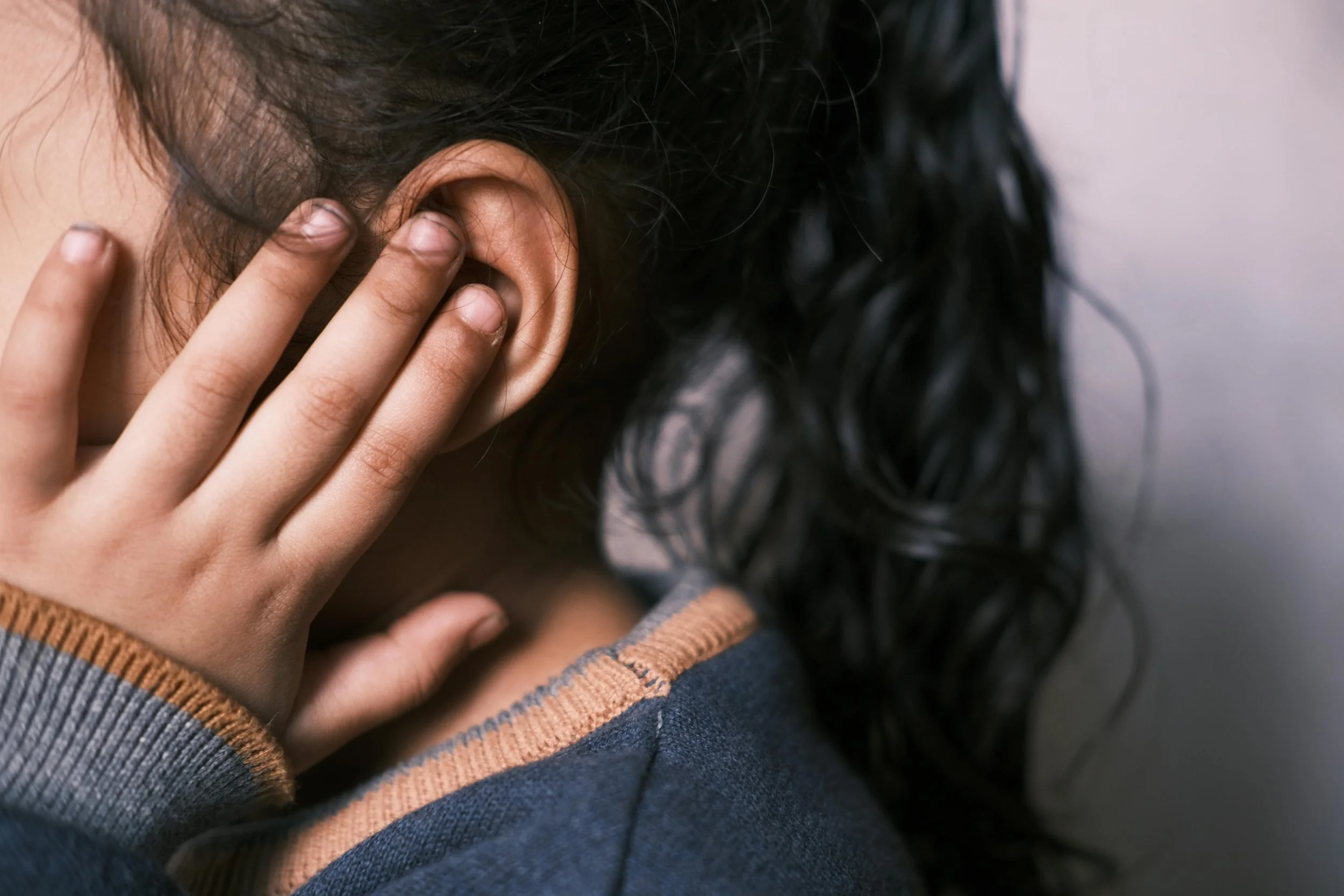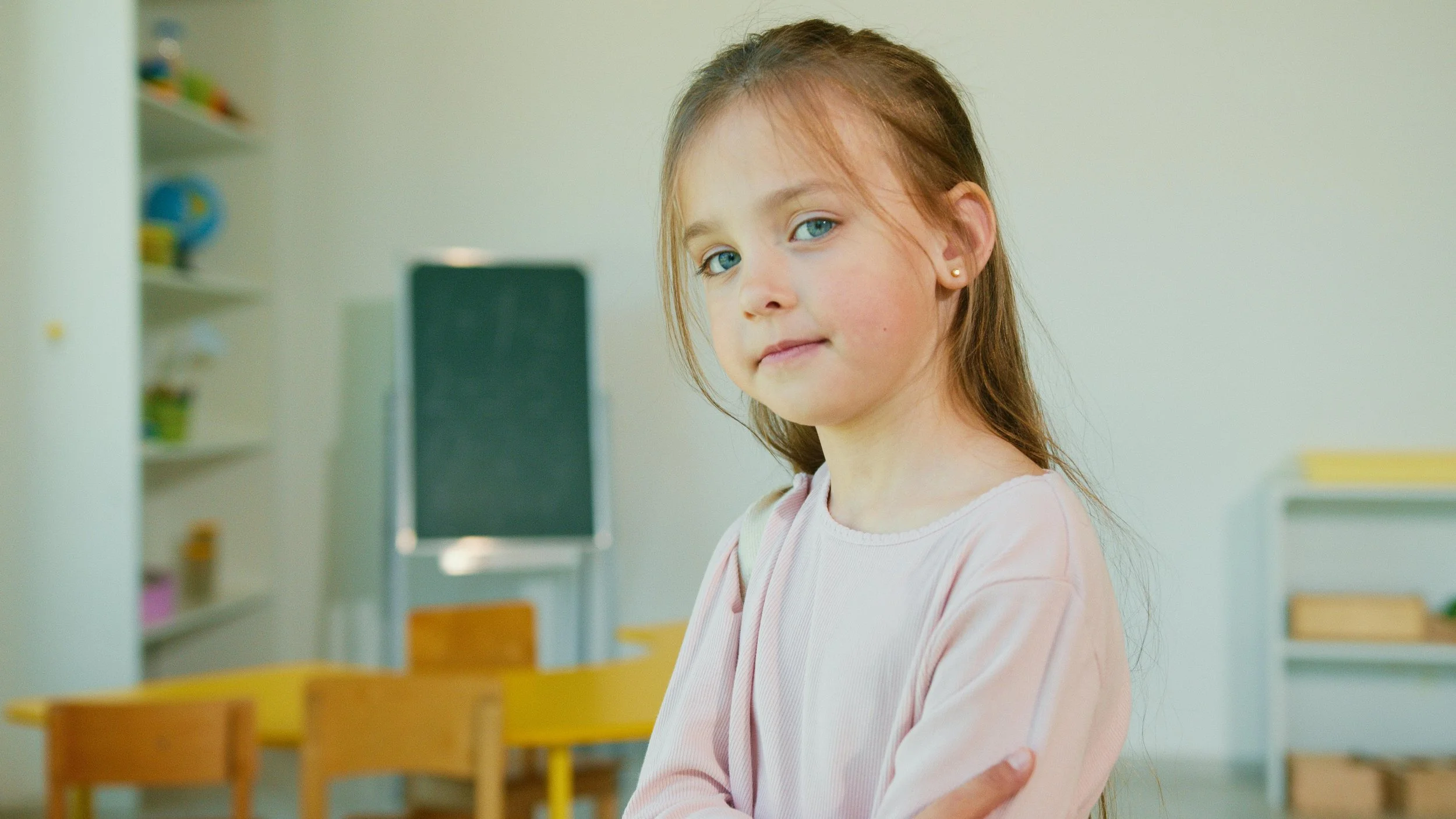When Your Child Feels Everything: Understanding Deeply Feeling Kids
Some children experience the world in technicolor. They notice everything, the way someone's voice changes when they're upset, the feeling of seams in their socks, the excitement in the air before a thunderstorm. When they're happy, they're radiant. When they're sad, it's as if the world is ending. If you’re raising one of these deeply feeling kids, you already know their emotional intensity is both beautiful and hard. These are the ones with giant hearts, wild imaginations, and incredible empathy. They're also the ones who fall apart over things that seem small or get so flooded with feelings they can’t think straight.
Your child isn’t “too sensitive” or “overreacting.” Their brain and body are simply built to feel things more strongly than most, and they need tools that match the way they experience the world.
The Beautiful Challenge of Big Emotions
Deeply feeling children often struggle with what we call emotional intensity. Their feelings come fast, strong, and sometimes feel too big for their bodies to contain. You might notice your child:
Reacts in ways that seem bigger than the situation calls for—crying for an hour over a broken toy or getting furious when plans change unexpectedly.
Takes longer to calm down once they're upset, sometimes staying dysregulated for hours after a difficult moment.
Gets easily overwhelmed in busy environments like restaurants, birthday parties, or crowded stores.
Struggles to find words when emotions are high, leading to more tears or anger instead of communication.
Shows physical signs of emotional overwhelm like headaches, stomachaches, or exhaustion after big feelings.
These children aren't being difficult on purpose. Their nervous systems are more sensitive to emotional input, and they haven't yet developed the skills to manage the intensity they naturally experience.
Meet DBT-C: Skills That Actually Work
Dialectical Behavior Therapy for Children (DBT-C) gives kids practical, concrete tools for managing big emotions. Unlike traditional "talk therapy" that focuses on discussing feelings, DBT-C teaches specific techniques that kids can use in the moment when emotions feel overwhelming.
Think of it like learning to surf. You can't control the waves (emotions), but you can learn to ride them with skill and balance instead of getting wiped out every time.
DBT-C teaches kids four essential skill sets that work together to help them navigate their emotional world:
The Four Superpowers: DBT-C Skills Explained
Mindfulness: The Superpower of Noticing
This isn't about sitting cross-legged in silence and meditating. For kids, mindfulness means learning to notice what's happening in their body and mind, tuning into their thoughts and body signals, without getting completely swept away.
A child using mindfulness skills might notice: "My heart’s pounding and my hands are sweaty. That usually means I’m getting anxious."
Distress Tolerance: The Superpower of Surviving Storms
These skills help kids get through really tough moments without making things worse for themselves. The goal isn't to feel better immediately, it's to ride out the difficult feeling without doing something they'll regret later.
A child using distress tolerance might think: "This feeling is really hard right now, but I know it won't last forever. I'm going to use my ice cube trick to help my body calm down."
Emotion Regulation: The Superpower of Understanding Feelings
These skills help kids name their emotions, figure out what caused them, and choose a helpful way to respond.
A child using emotion regulation might realize: "I'm not really mad at my sister. I'm disappointed that our playdate got canceled, and I took it out on her. Maybe I should say sorry and do something that helps me feel better."
Interpersonal Skills: The Superpower of Connection
These skills help kids express their needs, set boundaries, and maintain friendships even when they’re upset.
A child might say: "I'm feeling really frustrated right now. Can we pause this game and try again in a few minutes?"
What These Skills Look Like in Your Child's Real Life
When Your Child Gets Overwhelmed at School
Instead of: Having a complete meltdown in the classroom and needing to go to the nurse's office.
With DBT-C: They notice their body tensing and their breathing speeding up. They ground themselves—naming five things they see, four they hear, three they can touch. Then they ask the teacher for a short break to breathe.
When a Friend Says Something Hurtful
Instead of: Either exploding in anger or shutting down completely and avoiding the friend for weeks.
With DBT-C skills: They feel the hurt and anger but take a few breaths. They might say, "That really hurt my feelings. I don't think you meant it that way, but it made me sad." They're able to address the problem without damaging the friendship.
When Plans Change Unexpectedly
Instead of: Having a two-hour meltdown that ruins everyone's day.
With DBT-C skills: They feel the frustration and disappointment, acknowledge it, and then use a coping strategy—maybe drawing or listening to music—while adjusting to the new plan. The disappointment is still there, but it doesn't take over their whole day.
How Kids Actually Learn These Skills
DBT-C isn't about sitting in a chair and talking about feelings. It's hands-on, practical, and designed to meet kids where they are developmentally.
Kids practice skills through:
Real-life scenarios: Working through actual situations from their own lives, not made-up examples.
Creative activities: Using art, music, movement, or games to practice techniques in ways that feel natural and engaging.
Gradual building: Starting with easy situations and working up to more challenging ones as their confidence grows.
Home practice: Taking skills they've learned and trying them out in their daily life, then coming back to discuss how it went.
Personalized approaches: Finding which techniques work best for each individual child's learning style and emotional patterns.
The Science Behind Why This Works
DBT-C is based on solid research showing that children can learn to regulate their emotions when given the right tools. These skills work because they:
Work with the body first: Many techniques help calm the nervous system before asking kids to "think through" problems.
Are concrete and memorable: Instead of abstract advice, kids get specific steps they can remember and use.
Build on success: Kids practice skills when they're calm first, so the tools feel familiar when they need them most.
Create real confidence: As children successfully manage difficult situations, they develop genuine belief in their ability to handle whatever comes their way.
When DBT-C Might Be Perfect for Your Child
This approach works especially well for children who:
Experience emotions more intensely than their peers, even when they want to stay calm.
Get overwhelmed easily by sensory input, social situations, or changes in routine.
Struggle to bounce back from disappointment or conflict.
Are creative, sensitive, and empathetic but sometimes struggle with the intensity of their own emotions.
Learn best through doing, not just talking.
Want to feel more in control of their emotional responses but don't know how.
Have tried other approaches but need more concrete, practical tools they can actually use.
Is DBT-C Right for Your Child?
Every deeply feeling child is unique, and what works for one might not work for another. We believe in finding the right fit for your family's specific needs.
Schedule a free consultation to discuss your child's emotional world and learn more about whether our DBT-C program would be a good match.
Schedule Your Free Consultation
Your Child's Emotional Intensity Is a Gift
Your deeply feeling child has a rare superpower. They experience life with richness, depth, and authenticity that makes them incredibly special. DBT-C doesn't change who they are; it simply gives them the tools to navigate their emotional world with confidence and skill.
When kids learn to work with their emotions rather than being overwhelmed by them, beautiful things happen. They grow more confident, more resilient, and more able to share their strengths with others.
Big feelings aren’t a problem to fix. They’re a powerful part of who your child is, and they deserve support, understanding, and tools that help them shine.
About the Author
Suri Nowosiolski, LCSW, MSpEd, is a licensed clinical social worker with over 30 years of experience supporting children and families through school transitions and challenges. She specializes in childhood anxiety, school refusal, social skills development, and parent support. Suri is the founder of Hearts & Minds Psychotherapy Group and offers evidence-based programs for families navigating educational and social challenges.
Looking for more support?
SPACE: Discover your power as a parent to free your child from anxiety. Learn SPACE, a parent-based treatment clinically proven to effectively reduce child anxiety – through nothing but smarter, more informed parenting.
PEERS® for Preschoolers: Help young children develop social independence and confidence through our evidence-based parent education group:
Tween Social Anxiety Group: Help your 9–12-year-old build confidence and feel more at ease in social settings.
Teen Social Anxiety Group: Build confidence and independence in social situations for middle and high school students:
DBT-C Parent Group: Learn skills to support children's emotional independence and regulation while reducing family stress:



